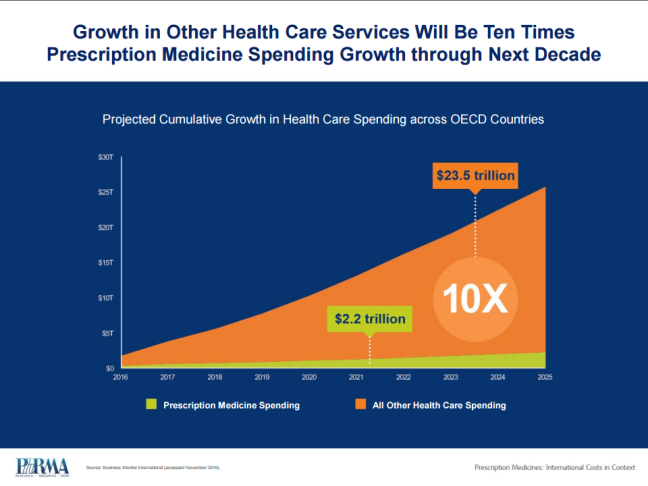Conversations and healthy debate about issues facing our industry and the health care system are critical to addressing some of today’s challenges and opportunities. The Catalyst welcomes guest contributors, including patients, stakeholders, innovators and others, to share their perspectives and point of view. Views represented here may not be those of PhRMA, though they are no less key to a healthy dialogue on issues in health care today.
We are pleased to share a blog post from Professor Meir Pugatch, IPKM Professor of Valorisation, Entrepreneurship and Management at the University of Maastricht and Managing Director of Pugatch Consilium, a boutique research consultancy.
In a world of global investment flows, securing a larger portion of the $150 billion invested per year by the research-based biopharmaceutical industry is anyone’s game. The 2017 results of the annual Biopharmaceutical Competitiveness & Investment (BCI) Survey, previewed at the International BIO Convention in San Diego in June, reveal that biopharmaceutical competitiveness turns on the policy conditions that countries decide to put in place. A number of BRICs and APAC countries punch below their weight in competitiveness because of detrimental policies for biopharmaceutical innovators. In contrast, the outstanding feature among those rated as most competitive in the 2017 BCI is a clear, systematic, and ongoing commitment to a policy environment that supports biopharmaceutical innovation. This is true for “newcomer” markets rated at the top – like Singapore, Israel, and Taiwan – as well as “mature” markets like Switzerland and the U.S.
Other countries that have tapped into this secret – a prime example being China – are today making quick work of closing gaps in conditions for biopharmaceutical innovation and attracting global investment. With recent moves to speed up regulatory approval and shore up biopharmaceutical intellectual property protection, on top of long-term efforts to create a world-class science base, China is taking steps to move from its current position in the middle of the BCI to the top.
What this means is that the competition is heating up and no market’s spot in the BCI is a given. A deterioration or even a wavering on key policy issues can be a country’s undoing, and this includes established leaders as well as the most promising markets. In 2017 countries that were previously considered to be rising stars – take Korea, Saudi Arabia, Colombia, or Turkey – are falling behind due to measures undercutting global innovation. At the same time, biopharmaceutical behemoths like the UK, Japan, and Canada are also losing ground, on the back of policies that jettison support for innovation and create uncertainty.
These policy choices take a tangible toll on biopharmaceutical innovation and the global economy. Less supportive policies in key countries translate into reduced commercial activities and revenues for biopharmaceutical companies there, and ultimately hamper their investment and economic contribution both internationally and at home.
The U.S. too – considered the world leader – must consistently work to foster its policy environment and stay ahead of the curve. Failing to nurture the innovation ecosystem risks losing out to other countries that are working to pull investment their way instead. This bears a higher cost than just losing its number one spot among biopharmaceutical markets. For example, our estimates suggest that the most pressing policy challenges among the 30+ markets in the BCI Survey in 2017 cost the biopharmaceutical industry up to $148.92 billion in global sales annually – and this may be regarded as a conservative estimate. This means nearly $149 billion in economic output and much more when taking into account the wider footprint of the industry on investment, jobs and other areas of the economy.
In fact, each country in the BCI holds the keys to success for improving or maintaining an environment that attracts biopharmaceutical investment today. Leveraging pockets of potential in R&D and clinical research and supporting the growth of local biopharmaceutical industries lies in providing enabling conditions for all innovators, not preferencing local companies at the expense of others. This means putting in place a range of market-based measures – targeting the very “nuts and bolts” of innovation – that spur investment from the laboratory to the bedside. Now is not the time to skimp on supporting biopharmaceutical innovation. The 2017 BCI results are loud and clear: those countries who do risk being ousted or left behind by those who want it more.





